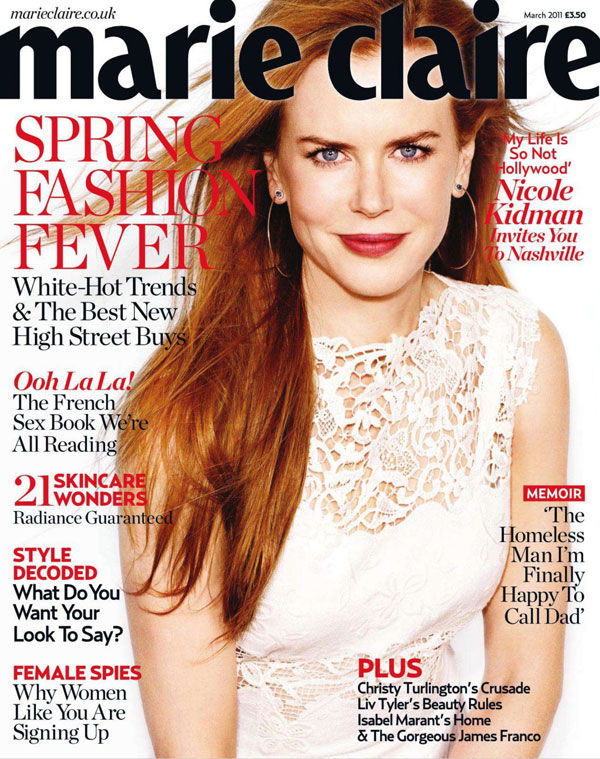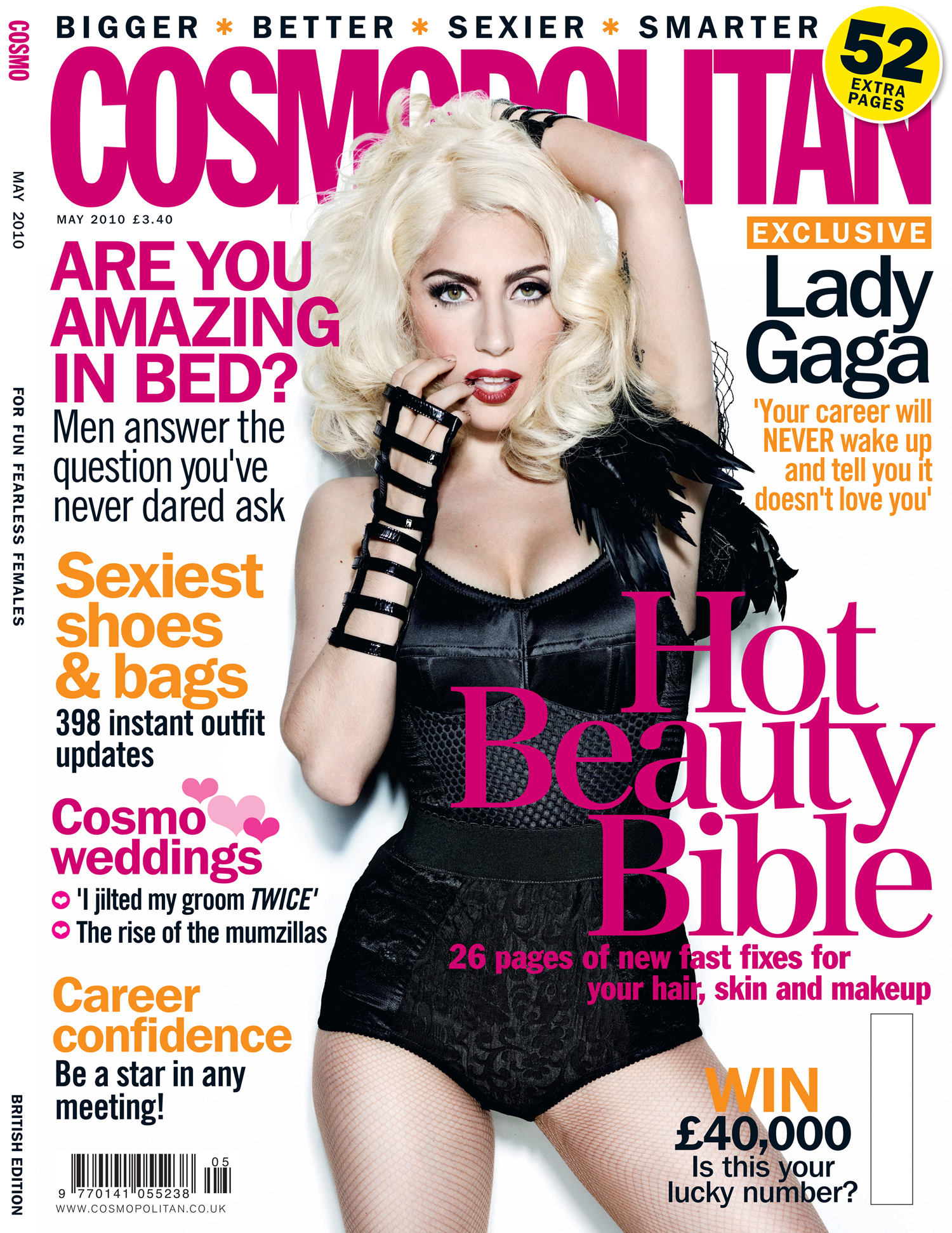With my first year of university almost over (yikes!), I still have one final essay to write for one of my modules: Communicating Sex and Gender. Out of the many choices of essay titles, I chose the question that explores the representation of women in magazines such as Glamour and Cosmopolitan.
My research consists of looking up academic texts on semiotics (the study of signs and their meaning), books on media representation, and of course, flipping through glossy magazines and taking in their contents. As I looked through the various magazines I have acquired over the years (which consist mainly of Glamour, with the occasional issue of Cosmo), I realised that despite their Girl Power mantras and their fearless female attitude, these magazines aren't very feminist at all.

In Cosmo's recent 40th anniversary issue (featuring Holly Willoughby on the cover), columnist Suzanne Moore wrote an article titled "Why Cosmo Rocks!" and explained that when Cosmo first hit the newsstands in the early '70s, it was, at the time, seen as this radical and outrageous thing because its main USP was female pleasure. It was one of the first magazines to insist the right of women to talk openly about and enjoy sex, be in control of their own bodies, and to 'find joy' in clothes and beauty. It was a very sexually liberating time for women everywhere. However, fourty years later, this 'sexually liberating' thinking still seems to be on the top of the list for most of these magazines. Fashion and beauty ranks pretty highly on their list of priorities too. Very rarely do we see articles on female politicians (NOT including small segments on newly elected world leaders' wives), sportswomen, women in science or women who campaign for women's rights all around the world. Instead, the pages are filled with beauty ads, fashion tips, stick-thin models and celebrities and endless articles about how to drop a dress size and how to give him the best sex he's ever had.
With all the influence and impact these kind of magazines have on women, especially their younger readers, they have so much power to do so much good. Instead, they impose messages like, "you have to look like this, act like this, dress like this..." and rather than encouraging us embrace our bodies, they make us want to change and manipulate it, and making us feel like failures when we cannot do so. Whenever they do touch on serious subjects such as Equal Pay Acts, it always gets overshadowed by the abundance of beauty and fashion and relationship columns they provide us with each month. It's like saying, "Yeah, we're not happy, but there's nothing we can do about it. So let's just make a bit of noise, then sit down and look pretty." Not to mention how predominantly straight-orientated these magazines are. So many articles in women's magazines deal exclusively with heterosexual relationships and treat lesbian encounters as 'experimental' and 'crazy' and, in general, don't take same-sex relationships seriously. In this day and age, where campaigning for LGBT rights have come so far (but still have further to go), what kind of message is this sending to future generations?


When I was fourteen, I read an article in Glamour written by Claudia Winkleman in which she shared with us her 'tips' on how to land a husband. It basically was telling women to do everything in their power to change themselves and lie to their partners in order to get that ring on their finger. It included things like doing the washing up dressed in your best lingerie and pretending to like football whenever he was around - and once you're married to revert back to your usual self because "you've got him now." Unfortunately I no longer own that particular issue in order to reference from it in more detail (I imagine I threw it out in a fit of feminist anger), but it made an impression on me because I realised that some women will do anything to please men, just to get themselves a husband.
What's recently struck a chord with me is the aforementioned 40th anniversary issue of Cosmo, and their competition to find curvy girls to represent a new size campaign with Evans, a plus-size clothing store, and to sign a contract with model agency Excel Models 1. Though Evans is a plus-sized clothing shop, storing UK sizes 14-32, the five girls they picked as the winners were all on the smaller end of the 'plus-size' spectrum, all wearing dress sizes 14-16. First of all, I find it ridiculous that a size 14 is even considered a plus size, especially factoring in that the average British woman is a UK size 14-16. I don't think it's a cause of celebration that these girls got contracts, because then we are implying that a size 14/16 is fat, which it is not by any means. Surely, if they wanted to properly represent 'curvy' and 'plus-sized' women, they would have searched for body-confident women who wore sizes 20 and up?
But I don't know, maybe I'm expecting too much from these kind of magazines. Maybe if we want to read about powerful women in politics we should do a Google search or read the
Guardian or watch the news instead (however, all of these mediums still undermine women
a lot). Maybe women's weekly and monthly magazines should stick to what they're good at: telling us which shoes go with which handbags, what shade of lipstick best suits our skin tone and how to have a healthy sex life. Most women go to glossy magazines for light reading and pretty pictures of celebrities. But I still think people underestimate the power of these magazines, and that those two hundred-odd pages really have an impact on how women think of themselves and each other. If they don't change
what they put within their pages and
how they communicate it to us, then we're just going to carry on silently living in a man's world. But at least our hair will be perfect, right...?
Edit: I ended up getting a first in that essay :)








